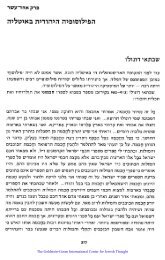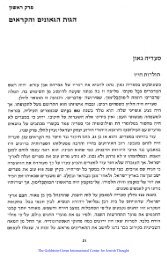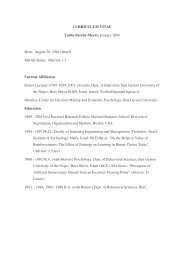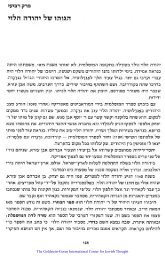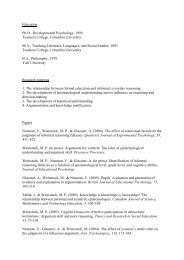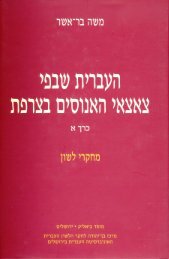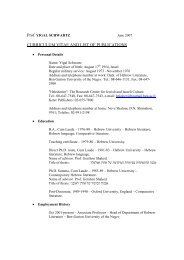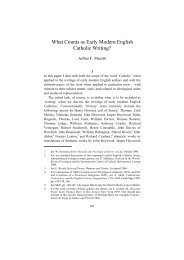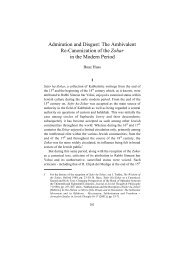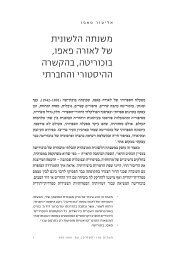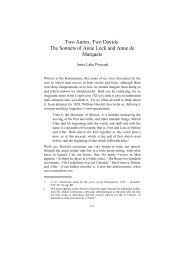You also want an ePaper? Increase the reach of your titles
YUMPU automatically turns print PDFs into web optimized ePapers that Google loves.
Tamar Alexander - <strong>Eliezer</strong> <strong>Papo</strong> ON THE POWER OF THE WORD<br />
letter by letter, and that it has been tried and true for a number of ills. 48<br />
Usually, traditional Sephardic rabbis did not quote women (young or old)<br />
as the source of reliable information. However, though, in the question of healing<br />
on the Sabbath, 49 as well as in case of differentiating between healing methods<br />
that had been proven as effective (and therefore excluded from the prohibition of<br />
following darḫe ha-Emori 50 i. e. religious beliefs of the nations of the world) 51 the<br />
female medical traditions were taken into consideration and seriously dealt with.<br />
Rabbinic law, as a rule, relies upon the opinion of experts in different non-legal<br />
fields, and being the fact that in the area of folk medicine the opinion of women<br />
professionals is considered authoritative, their traditions are mentioned honorably.<br />
It should be stressed, however, that elderly men were added to the women as<br />
a source of information, and their appearance even precedes that of the women.<br />
In the negative context, however, of the indulko ritual, Ribbi <strong>Eliezer</strong> ben Santo<br />
(Šem-Tov) <strong>Papo</strong> imputes the phenomenon exclusively to women. Moreover, he<br />
terms the phenomenon as aznedades de mujeres (asinine deeds of women). Ribbi<br />
David Pardo also begins his description of the indulko grande by ascribing the<br />
phenomenon to the women, saying: I was astounded daily by deeds that the women<br />
perform here for the ill…. 52<br />
In the continuation, Dr. Izrael himself stresses the distinction between the<br />
activity of the women and that of the men in this context:<br />
Healing the evil eye is not the exclusive bailiwick of these<br />
grandmothers, elderly rabbis or God-fearing rabbinic sages are versed<br />
in this as well—but then the ceremony is not based on any formulas—<br />
but rather on reading scriptural verses and prayers, especially from<br />
Psalms. 53<br />
48 E. S. <strong>Papo</strong>, Mešeq Beti (see n. 25 above), entry ḥoleh (ill person), par. 23, at the end of the<br />
paragraph.<br />
49 See Šulḥan c Aruḫ, Oraḥ Hayyim, # 301, pars. 25–27.<br />
50 The term Darḫe ha-Emori refers to the customs of other nations that have no elements<br />
of idol worship but at the same time are not considered as wisdom of the non-Jews (rationally<br />
acceptable things) but rather belong to the realm of their religious beliefs. They are prohibited<br />
owing to You shall not copy the practices (Lev. 18:3) or You shall not follow their practices (Ex.<br />
23:24). For further explication of the term, see Talmudic Encylopedia, vol. 7, entry Dereḫ ha-<br />
Emori [Hebrew].<br />
51 For example, see Šulḥan c Aruḫ, Oraḥ Ḥayyim, # 301, par. 27; # 605, par. 2; # 448, par. 1;<br />
and also Yore De c a, # 450.<br />
52 The end of the sentence is written in Aramaic.<br />
53 See n. 27 above.<br />
71



